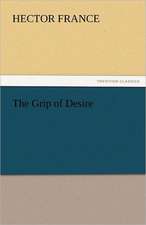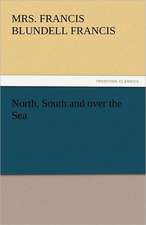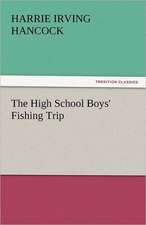Fugitive Pieces
Autor Anne Michaelsen Limba Engleză Paperback – 30 apr 1998
Vezi toate premiile Carte premiată
Guardian First Book Award (1997), Baileys Women's Prize for Fiction (1997)
| Toate formatele și edițiile | Preț | Express |
|---|---|---|
| Paperback (2) | 48.56 lei 3-5 săpt. | +24.47 lei 4-10 zile |
| Bloomsbury Publishing – mar 2009 | 48.56 lei 3-5 săpt. | +24.47 lei 4-10 zile |
| Vintage Books USA – 30 apr 1998 | 111.29 lei 3-5 săpt. |
Preț: 111.29 lei
Nou
Puncte Express: 167
Preț estimativ în valută:
21.30€ • 22.15$ • 17.58£
21.30€ • 22.15$ • 17.58£
Carte disponibilă
Livrare economică 25 martie-08 aprilie
Preluare comenzi: 021 569.72.76
Specificații
ISBN-13: 9780679776598
ISBN-10: 0679776591
Pagini: 304
Dimensiuni: 132 x 204 x 16 mm
Greutate: 0.22 kg
Ediția:Vintage Intl.
Editura: Vintage Books USA
ISBN-10: 0679776591
Pagini: 304
Dimensiuni: 132 x 204 x 16 mm
Greutate: 0.22 kg
Ediția:Vintage Intl.
Editura: Vintage Books USA
Notă biografică
Anne Michaels teaches creative writing in Toronto. Her two collections of poetry are The Weight of Oranges (1986), which won the Commonwealth Prize for the Americas, and Miner's Pond (1991), which received the Canadian Authors Award and was shortlisted for the Governor General's Award and the Trillium Award. Fugitive Pieces is her first novel.
Recenzii
"Extraordinarily magical." --Michiko Kakutani, The New York Times
"Lovely...musical and magical.... Put this book alongside The English Patient." --Chicago Tribune
"Word by blessed word, it is a gorgeously written book: aflame with the subzero cold of history and the passions of emotional comprehension." --Boston Globe
"Fugitive Pieces deserves to become a classic." --San Francisco Chronicle
"Lovely...musical and magical.... Put this book alongside The English Patient." --Chicago Tribune
"Word by blessed word, it is a gorgeously written book: aflame with the subzero cold of history and the passions of emotional comprehension." --Boston Globe
"Fugitive Pieces deserves to become a classic." --San Francisco Chronicle
Extras
My sister had long outgrown the hiding place. Bella was fifteen and even I admitted she was beautiful, with heavy brows and magnificent hair like black syrup, thick and luxurious, a muscle down her back. "A work of art," our mother said, brushing it for her while Bella sat in a chair. I was still small enough to vanish behind the wallpaper in the cupboard, cramming my head sideways between choking plaster and beams, eyelashes scraping.
Since those minutes inside the wall, I've imagined the dean lose every sense except hearing. The burst door. Wood ripped from hinges, cracking like ice under the shouts. Noises never heard before, torn from my father's mouth. Then silence. My mother had been sewing a button on my shirt. She kept her buttons in a chipped saucer. I heard the rim of the saucer in circles on the floor. I heard the spray of buttons, little white teeth.
Blackness filled me, spread from the back of my head into my eyes as if my brain has been punctured. Spread from stomach to legs. I gulped and gulped, swallowing it whole. The wall filled with smoke. I struggled out and stared while the air caught fire.
I wanted to go to my parents, to touch them. But I couldn't, unless I stepped on their blood.
The soul leaves the body instantly, as if it can hardly wait to be free: my mother's face was not her own. My father was twisted with falling. Two shapes in the flesh-heap, his hands.
I ran and fell, ran and fell. Then the river: so cold it felt sharp.
The river was the same blackness that was inside me; only the thin membrane of my skin kept me floating.
From the other bank, I watched darkness turn to purple-orange light above the town; the color of flesh transforming to spirit. They flew up. The dead passed above me, weird haloes and arcs smothering the stars. The trees bent under their weight. I'd never been alone in the night forest, the wild bare branches were frozen snakes. The ground tilted and I didn't hold on. I strained to join them, to rise with them, to peel from the ground like paper ungluing at its edges. I know why we bury our dead and mark the place with stone, with the heaviest, most permanent thing we can think of: because the dead are everywhere but the ground. I stayed where I was. Clammy with cold, stuck to the ground. I begged: If I can't rise, then let me sink, sink into the forest floor like a seal into wax.
Then -- as if she'd pushed the hair from my forehead, as if I'd heard her voice--I knew suddenly my mother was inside me. Moving along sinews, under my skin the way she used to move through the house at night, putting things away, putting things in order. She was stopping to say goodbye and was caught, in such pain, wanting to rise, wanting to stay. It was my responsibility to release her, a sin to keep her from ascending. I tore at my clothes, my hair. She was gone. My own fast breath around my head.
I ran from the sound of the river into the woods, dark as the inside of a box. I ran until the first light wrung the last grayness out of the stars, dripping dirty light between the trees. I knew what to do. I took a stick and dug. I planted myself like a turnip and hid my face with leaves.
My head between the branches, bristling points like my father's beard. I was safely buried, my wet clothes cold as armor. Panting like a dog. My arms tight up against my chest, my neck stretched back, tears crawling like insects into my ears. I had no choice but to look straight up. The dawn sky was milky with new spirits. Soon I couldn't avoid the absurdity of daylight even by closing my eyes. It poked down, pinned me like the broken branches, like my father's beard.
Then I felt the worst shame of my life: I was pierced with hunger. And suddenly I realized, my throat aching without sounds -- Bella.
Since those minutes inside the wall, I've imagined the dean lose every sense except hearing. The burst door. Wood ripped from hinges, cracking like ice under the shouts. Noises never heard before, torn from my father's mouth. Then silence. My mother had been sewing a button on my shirt. She kept her buttons in a chipped saucer. I heard the rim of the saucer in circles on the floor. I heard the spray of buttons, little white teeth.
Blackness filled me, spread from the back of my head into my eyes as if my brain has been punctured. Spread from stomach to legs. I gulped and gulped, swallowing it whole. The wall filled with smoke. I struggled out and stared while the air caught fire.
I wanted to go to my parents, to touch them. But I couldn't, unless I stepped on their blood.
The soul leaves the body instantly, as if it can hardly wait to be free: my mother's face was not her own. My father was twisted with falling. Two shapes in the flesh-heap, his hands.
I ran and fell, ran and fell. Then the river: so cold it felt sharp.
The river was the same blackness that was inside me; only the thin membrane of my skin kept me floating.
From the other bank, I watched darkness turn to purple-orange light above the town; the color of flesh transforming to spirit. They flew up. The dead passed above me, weird haloes and arcs smothering the stars. The trees bent under their weight. I'd never been alone in the night forest, the wild bare branches were frozen snakes. The ground tilted and I didn't hold on. I strained to join them, to rise with them, to peel from the ground like paper ungluing at its edges. I know why we bury our dead and mark the place with stone, with the heaviest, most permanent thing we can think of: because the dead are everywhere but the ground. I stayed where I was. Clammy with cold, stuck to the ground. I begged: If I can't rise, then let me sink, sink into the forest floor like a seal into wax.
Then -- as if she'd pushed the hair from my forehead, as if I'd heard her voice--I knew suddenly my mother was inside me. Moving along sinews, under my skin the way she used to move through the house at night, putting things away, putting things in order. She was stopping to say goodbye and was caught, in such pain, wanting to rise, wanting to stay. It was my responsibility to release her, a sin to keep her from ascending. I tore at my clothes, my hair. She was gone. My own fast breath around my head.
I ran from the sound of the river into the woods, dark as the inside of a box. I ran until the first light wrung the last grayness out of the stars, dripping dirty light between the trees. I knew what to do. I took a stick and dug. I planted myself like a turnip and hid my face with leaves.
My head between the branches, bristling points like my father's beard. I was safely buried, my wet clothes cold as armor. Panting like a dog. My arms tight up against my chest, my neck stretched back, tears crawling like insects into my ears. I had no choice but to look straight up. The dawn sky was milky with new spirits. Soon I couldn't avoid the absurdity of daylight even by closing my eyes. It poked down, pinned me like the broken branches, like my father's beard.
Then I felt the worst shame of my life: I was pierced with hunger. And suddenly I realized, my throat aching without sounds -- Bella.
Descriere
Published to rapturous acclaim, this fiercely concentrated and beautifully written novel tells the story of a Polish Jew who, at the age of seven, after seeing his parents murdered by the Nazis, is resurrected by a Greek scientist, and transformed from a half-wild survivor into a scholar and translator who extracts meaning from the unfathomable horror of our time.
Caracteristici
Winner of the Orange Prize for Fiction and winner of the Guardian Fiction Award. Of all the Orange Prize winners since it began, this is the 4th bestselling book.
Premii
- Guardian First Book Award Winner, 1997
- Baileys Women's Prize for Fiction Winner, 1997
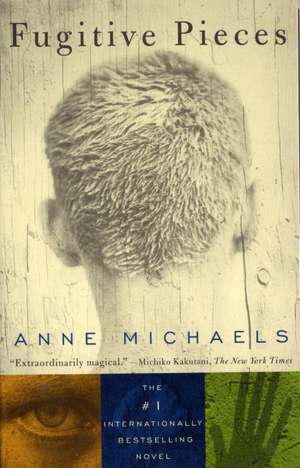
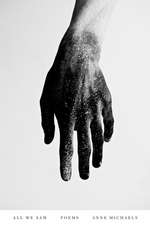

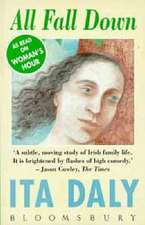
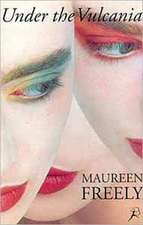
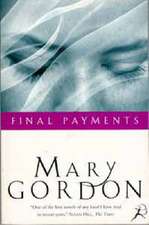
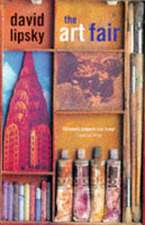

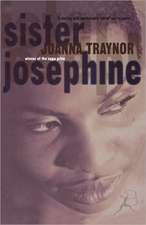
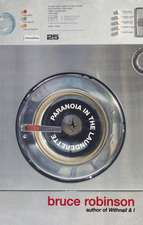


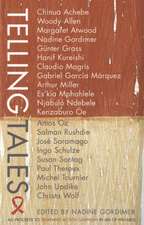

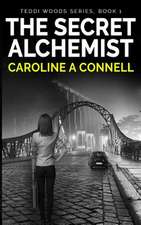
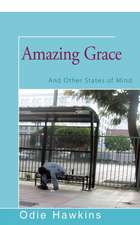
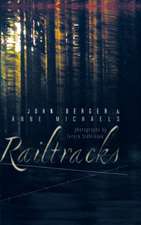
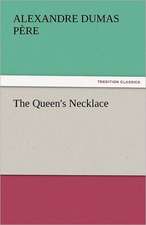
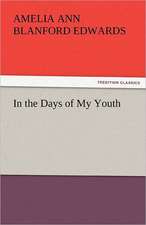
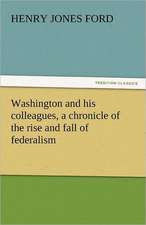
![The True George Washington [10th Ed.]](https://i3.books-express.ro/bt/9783842446588/the-true-george-washington-10th-ed.jpg)
